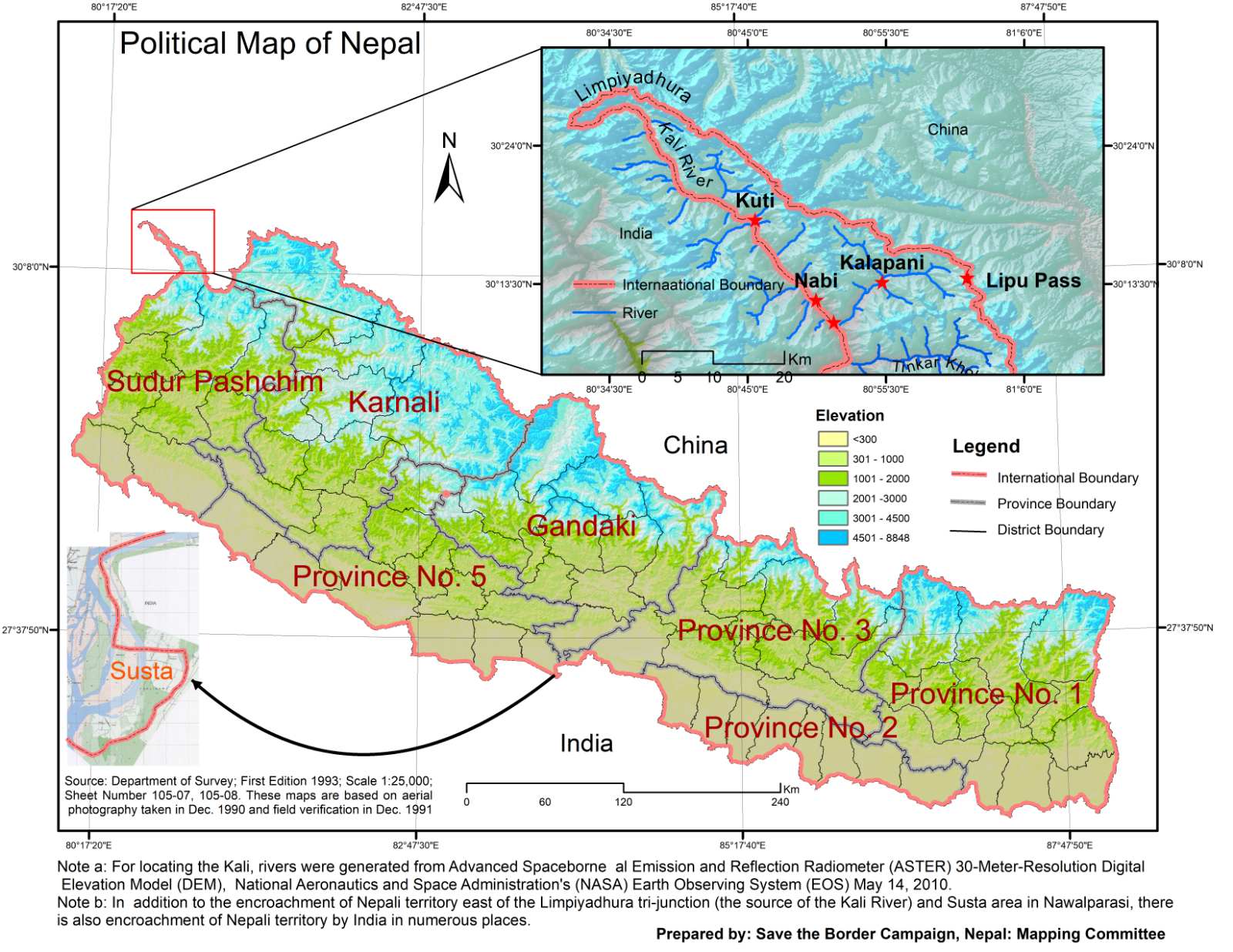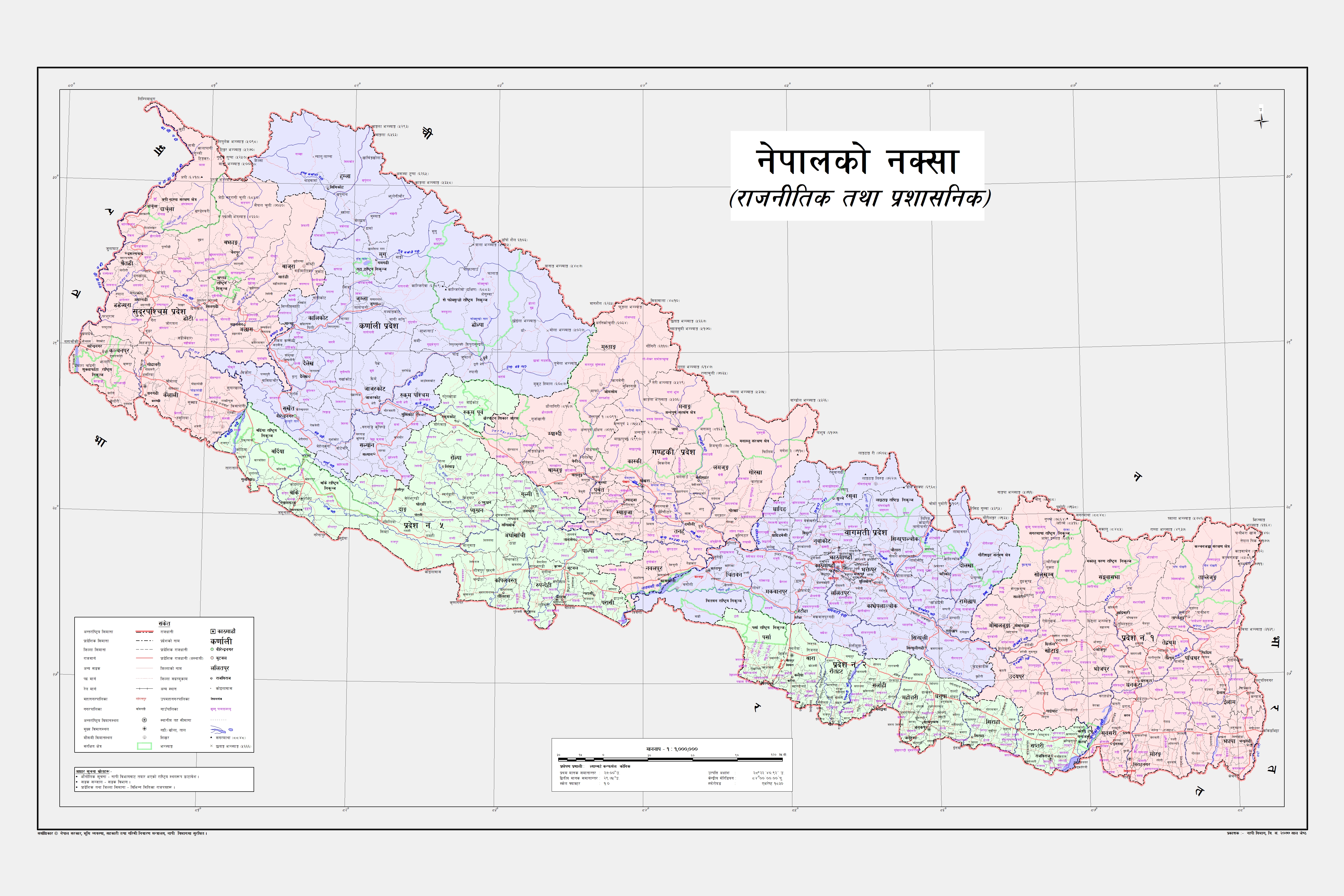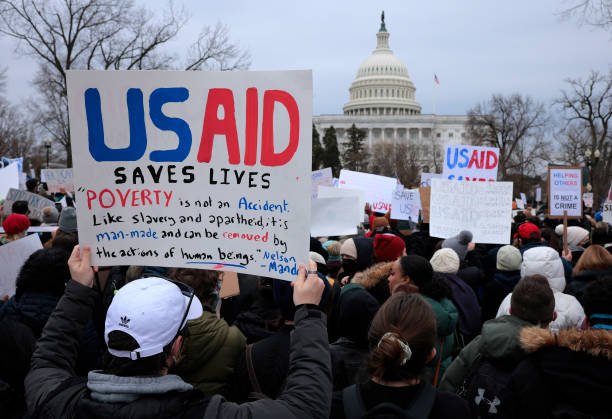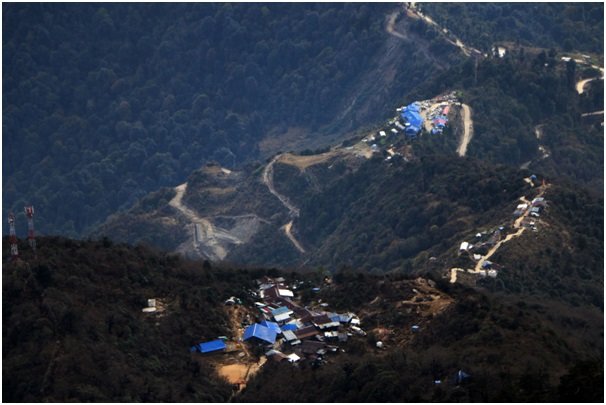Covid 19, Kalapani and KP Oli Government: Nepal’s Foreign Policy and Diplomacy with Neighbors

The Nepal’s government, Ministry of Health and Population (MoHP) states that the cases of Covid 19 in Nepal remains relatively low in spite of insufficient health centers, including low numbers of tests, shortage of testing kits, and public protecting equipments (PPE) for the health workers. At present Nepal has received logistical supports from the World Bank, India and China. The spread of COVID-19 cases are having very negative impacts on our economy because of nationwide lockdowns, shutdowns of airports, transportations, industries, hotels, restrictions on international travels through roads and airlines and also low remittances sent by foreign migrant workers. After the Covid 19 outbreaks, remittances sent by Nepali migrants are highly reduced mainly from the workers in India, Middle East, Malaysia and South Korea but our government has not been able to provide timely responses and supports to them in this crisis situation. Government authorities requested people residing overseas to remain in their host international countries in which they are currently living and working. With the closing of the international travels many who wish to come back don’t have any alternatives but to stay there.
Although late, it is a good decision made by the government that it will allow them to return who are in real difficulties and wish to come back with their own expenses and have to live in quarantines for few weeks after their arrival. But proper arrangements need to be made on these plans. However the matters with Nepali migrants in India are different because of our long shared open borders. After India declared a complete lockdown thousands of Nepali migrant workers are traveling on roads to enter Nepal from border checkpoints, however they have been stopped by the authorities at the Nepali sides. Due to lack of the quarantine facilities on the border checkpoints, these people have been waiting to reach their homes. Despite of Social distancing and lockdowns there have been panic and fear over the risk and spread of the pandemic from border points to Nepal. Nepal’s GDP basically depends on agriculture and the service sectors and low on industrial areas which means, Nepal by only its own capacity will have difficulties in basic goods like foods and medicines. These lockdowns which are running for over 2 months have mostly effected to the people who depend on daily wages labors, small shops and businesses whose financial incomes are low. Thus considering their vast financial hardship of these people and overall low economy of the nation, government immediately need to seek other alternatives and better modalities to control the outbreaks. Expanding the rapid tests of the virus to large population in affected areas should be done immediately.

As Nepal is a landlocked country between India and China and after COVID-19 outbreaks, Nepal has closed its borders with those neighbor countries. Although the authorities has ordered the local governments to resume trades at some border points with China, the delays and difficulties from hilly roads through a mountainous territories are very hard and costly. Throughout the history, India has provided logistical supports to Nepal in such emergencies, however in 2015 incident where a blockade imposed by India and there were scarcities of daily goods like petroleum supplies, food and medicines At present also India remains a only hope and prospect to Nepal as India is still Nepal’s largest trading partner. However Nepal is now also looking toward China as an another good option of India. Frequent strained Nepal-India relations might prove to be a golden opportunity for China to expand its positions and actions. Beijing has a possibility to lessen New Delhi’s roles and to focus its interests in Tibet on border regions. Therefore, in Nepal’s efforts to control COVID-19, China is also is on forefront in providing mainly medical materials. Even though India has started an initiative on regional response to COVID-19 using the SAARC as a platform, where Nepal is a member, its success will to be big challenge. Other member countries of SAARC like Bangladesh, Sri Lanka, Bhutan have shown interests and supports of SAARC, lively roles on this region, however troubled and problematic bilateral relations of India and Pakistan for decades particularly of Kashmir, SAARC has remained a massive setback until India and Pakistan mutual relations become cordial and friendly.
After 2015 massive earthquake governments should have focused timely and effective reconstructions of infrastructures, industries, health facilities, and strengthening the emergency responses . However foreign investments and funds are main sources for infrastructure developments and Nepal has to depend highly on foreign countries for its overall developments. Corruption, misuses and spends of funds and irregularities by the government bodies, bureaucracies, political parties, non government organizations(ngos) need to be managed and controlled immediately. Right after devastating earthquakes in 2015, India was the first country to support us on our emergency responses, rescues and disaster management. As now the worries and panics are rising in Nepal on combating the Covid 19 to spread further. Government has assured the people about the importance of social distancing and continues lockdown to COVID-19.
Nepal’s neighbor countries India and China are also suffering from this pandemic. China, has managed to control the spread of virus at successful rates however India is still facing high cases of disease affecting many regions and people on this vast country. There are Himalayas and controlled border between Nepal and China and probabilities of spreading virus from China to Nepal are very low. But, Nepal and India have open borders and from these porous borders on normal regular times, thousands of people cross the points for many reasons.. People of each country can move freely without any travel restrictions, without any passports and visas. After the Covid 10 outbreaks and lockdowns, thousands of people crossed the borders without any controls, health precautions and security checks. Large number of Nepalese and even Indians have reached to many districts and villages, of Nepal and to capital Kathmandu.
The article 7 of Treaty of Peace and Friendship between India and Nepal of 31st July 1950 has stated, “The authorities of India and Nepal conform to supply, on a reciprocal basis to the nationals of one country in the territories of the other the equal privileges in matte of residence, ownership of assets, participation in extrude and commerce, movement and other privileges of a similar nature.” For many years in Nepal many high debates are happening to change, review and amend the treaty about open borders Furthermore, there has usually been a strong demand to review 1950 treaty with India as the majority consider it to be unequal, and an encroachment on the national interests and prospects of Nepal. That treaty was signed between Rana Prime Minister Mohan Shumsher and Indian Ambassador to Nepal as Rana regime was non democratic on that period, India has just gained independence from British rule and Nepalese people with support of Nepali Congress were fighting for Democracy and Freedom. In those duration Rana rulers interest was to save their regime, they normally focused on their very own gains and concerns of India than Nepal For this reason democratic government of Nepal has to review and formulate the treaty in formal and diplomatic ways in present context of Nepali people. Being a landlocked, dependent and because of its geopolitical position, Nepal’s situation has mostly been fragile and nearly all its countrywide affairs have been significantly affected as result of open insecure borders. Having insecure, unsafe, unregulated and unmanaged borders and because of these reasons, human trafficking, refugees, terrorism, crimes, criminal illegal, antisocial activities, fake currencies, transports of weapons, guns, illegal trades and transits, commerce, economic loss, citizenships, employments and many other major problems and difficulties are high for both the countries. But after continued request from Nepal, India agreed in January 2016 to form Eminent Person Group(EPG), with the directives to review and form many articles of the bilateral relations including Nepal-India Friendship Treaty 1950.
Review of bilateral issues Nepal has a big concern over some articles of 1950 treaty with India including unmanaged open borders with India, provision to import weapons informing India and equal national treatments for people of both countries. Neither the 1950 treaty nor any other treaty between the two countries has any measures for the security of the Nepal-India borders. Citizens of both the countries have been moving freely into each other’s territory from any point of the 1,751km long open borders.
The open border with India is likewise one of the causes for this demographic differences in Nepal. Moreover, there are large numbers of Indian workers and businessmen are working in private sectors of Nepal. Indians in Nepal are residing in places of tarai, Kathmandu and big cities, where financial gains are higher and are better managed. But Nepalese those migrate India are working in low-paying labor works sending low remittances to Nepal The virus pandemic has definitely changed the global migration condition. As EPG has suggested to use of smart cards on open borders to control terrorism, crimes and criminals smuggling of fake-foreign money, employments, human trafficking and other illegal activities before it spreads like Covid19. These open borders and territories of India and Nepal have to be used for mutual financial, and trade, for peace and prosperity for health, employment, education, culture, tradition, religion, tourism, language, and for all many political, social, economic opportunities and progresses They should become boons instead of curses to the people living in each territories and these geographic boundaries must not be barriers as we've strong geographic, historic, social, cultural, tradition, religion and economic relations.
While many countries like Nepal, India and China are fighting wars against Covid 19, in the mean time Indian Defense Minister RajNath Singh inaugurated the Lipulekh pass road to Tibet (China) which will shorten the distance from India for many days to Kailash Mansarovar, one of the most sacred pilgrims and sites of the Hindu. The road starts from Darchula district, Sudurpaschim of Nepal to Uttarakhand of India. Nepal claims that the Link Road Connecting to Lipulekh passes through Nepal’s territory and border.
Nepal claims that India’s move marks a breach of the agreement, reached between the Indian PM and Nepali PM in 2014 which sought to work out the outstanding boundary disputes on Kalapani and Lipulekh.
The Ministry of External Affairs of India has clarified that the link road passing through Uttarakhand’s Pithoragarh district lies completely within the territory of India.
India has also clarified that the new link road follows the pre-existing routes used by the pilgrims and religious sites of the Kailash Mansarovar Yatra.India has stated that the boundary markings with Nepal is ongoing, and that India is committed to resolving outstanding boundary disputes through diplomatic dialogues and in the spirit of our close and friendly bilateral relations with Nepal.
Under the treaty of Sugauli signed between Nepal and the British East India Company in 1816, the Kali River was located as Nepal’s western boundary with India.
This disagreement has led to the boundary disputes between India and Nepal, with each country producing maps including the territory in their own area to support their positions. India has started to construct the roads many years back and Nepali government, Foreign, Defense Ministry and Security Agency’s negligence responsibilities and delays to stop India are highly questionable and criticized. They are very sensitive matters of Nepal’s national interests, sovereignty, independence and territorial integrity and India should not commit these actions and movements against Nepal. India should not influence and interfere in Nepal’s internal matters. Both countries need to follow the international laws and treaties and abide strictly by those principles and policies.
In this context Nepal needs to have balanced trilateral relations with India and China with strong foreign relations, foreign policy and diplomacy. Nepal government, PM Oli and Foreign Minister, Defense Ministers of Nepal have to engage in formal, official and diplomatic dialogues and constructive approaches directly with Indian Prime Minister Modi, Foreign and Defense Ministers. At present scenario, if India has occupied the territories those seems to be in the interests and benefits of trade and economic gain with Tibet( China) As the length of the distance to travel will be very short through Nepal and high numbers of Indian Hindu religious people will travel to Kailash Mansarover through that road and will also highly beneficial to Tibet( China) on trade and economic growth of the people in that region. Recently Chinese Foreign Ministry issued a statement that border and territory disputes are between India and Nepal and both have to settle the matters by them. For long period China is also very silent as India is a very big trade partner and both countries will have high benefits.
Nepal also need to have trade and economic benefits from India and China who are trying to be hegemonic powers in the regions Nepal can take enormous benefits for its economic growth. If India tries to expand its imperialist policies of expansionism and imperialism in political, territorial and economic affairs in South Asia including Nepal, which are opposed and rejected in this region. Chinese President Xi Ping visit to Nepal few months back and it is rising to be a global political, military and economic super power in the world is also showing its active roles and participation in Nepal. So if these two giant neighbors have healthy, peaceful and meaningful rivalries and relations, Nepal can take enormous benefits for its economic prosperity and also proper solutions to these disputed regions of Kalapani and Lipulekh. Nepal needs strong trilateral and strategic relations with these two countries, bring them into sphere of economic influences, stability and development and this is very appropriate time and high opportunities for Nepal at present.
Writer Dhungana holds MA degree in Politics/International Relations from JNU,India and LLB(Law) from TU, Nepal.
Email; [email protected]






Leave Comment